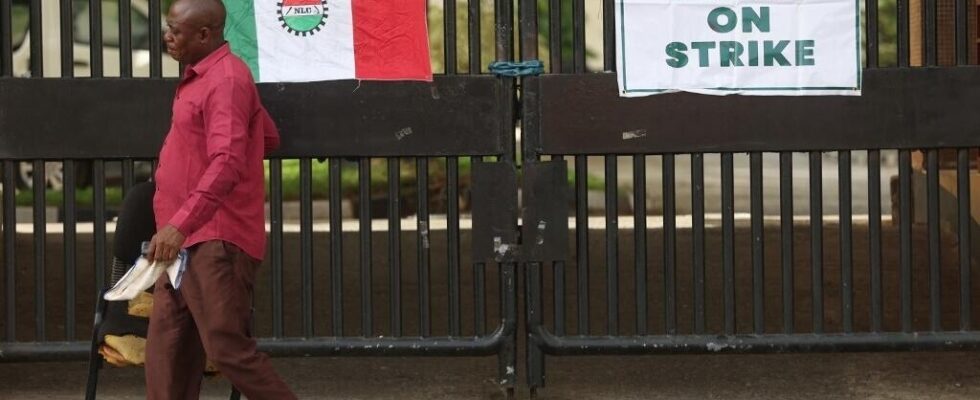On Monday, the mobilization brought the entire formal sector and many activities to a halt in Nigeria. The suspension of the general strike was announced on Tuesday June 4 after a meeting of the main confederations in Abuja. The government has committed to meeting with unions every day this week.
1 min
This is a one-week break to allow negotiations to reach an agreement, the Nigeria Labor Congress and the Trade Union Congress, the two main trade union confederations, announced this Tuesday, June 4 at the end of their meeting. from Nigeria.
Their representatives were received on Monday evening in Abuja by the Minister of State for Labor and the Minister of Information. Together, they signed a document containing several resolutions: no striker must suffer reprisals, unions and government will meet every day of the week.
Increase in the minimum wage in a context of economic crisis
President Bola Ahmed Tinubu has pledged to go beyond the N60,000 minimum wage increase proposed by the government. This is certainly double the current minimum wage, but 60,000 naira still only represents around 25,000 CFA francs or 35 euros.
We are far from the demands of the unions which are asking for eight times more – 494,000 naira, the equivalent of around 300 euros – in a context of serious economic crisis with a devalued national currency, inflation at 33% last month and increases electricity prices.
This Monday, on the other hand, the entire distribution of electricity and water was at a standstill. due to the strike. Banks, shops, administrations, gas stations, schools were closed. The impact was even felt in neighboring Niger where the electricity network was disrupted.
